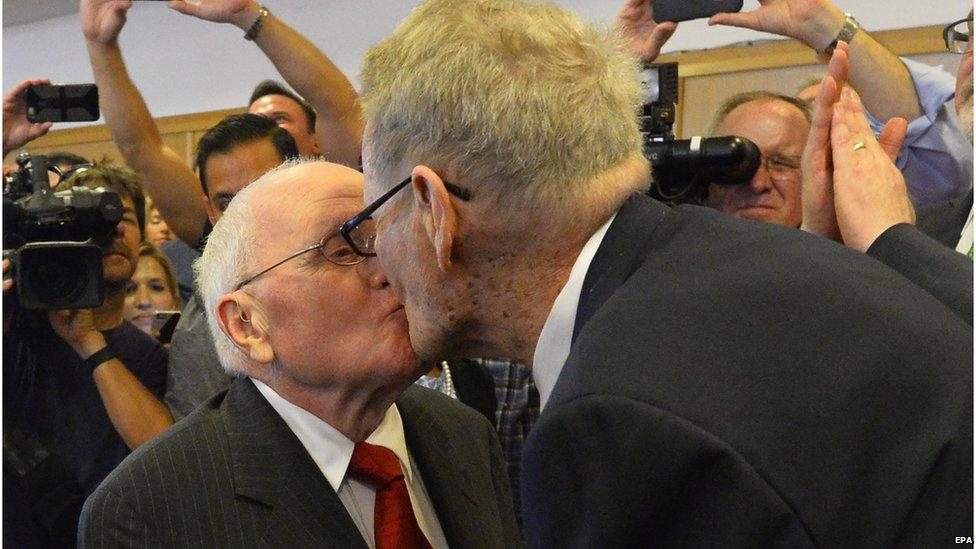What's in Trump's religious liberty order?
- Published
'We'll never stand for religious discrimination'
President Donald Trump has signed an executive order to ease a ban on political endorsements by churches and religious groups.
The order loosens a provision of the tax code which prohibits religious organisations from directly supporting or opposing political candidates.
Mr Trump often complained about the rule as a candidate. Repealing it would require action in Congress.
LGBT groups and several human-rights groups oppose the order.
The order was signed by Mr Trump as he hosts conservative religious leaders at the White House for the National Day of Prayer.
"We will not allow people of faith to be targeted, bullied or silenced ever again," Mr Trump told the audience.
What does the order say?
The Executive Order on Promoting Free Speech and Religious Liberty directs the IRS to provide "regulatory relief" to faith-based organisations that are tax-exempt, a White House spokesman said on Wednesday night.
A current provision in the US federal tax code, known as the Johnson Amendment, says that churches can be investigated and lose their tax-exempt status if they directly support or oppose any political candidate.
Divided America: Young, gay and afraid in the Bible Belt
Since he cannot repeal the law without congressional legislation, Mr Trump is directing the IRS to "exercise maximum enforcement discretion to alleviate the burden of the Johnson Amendment".
Few religious groups are known to have lost their tax status for violating the law, despite many churches openly advocating for political causes and hosting candidates during their campaigns.
"A crippling financial punishment," Mr Trump said ahead of his signing, adding "very, very unfair. But no longer".
The order also directs federal agencies to exempt some religious groups from providing birth control to employees and staff, as required under President Obama's Affordable Care Act, also known as Obamacare.
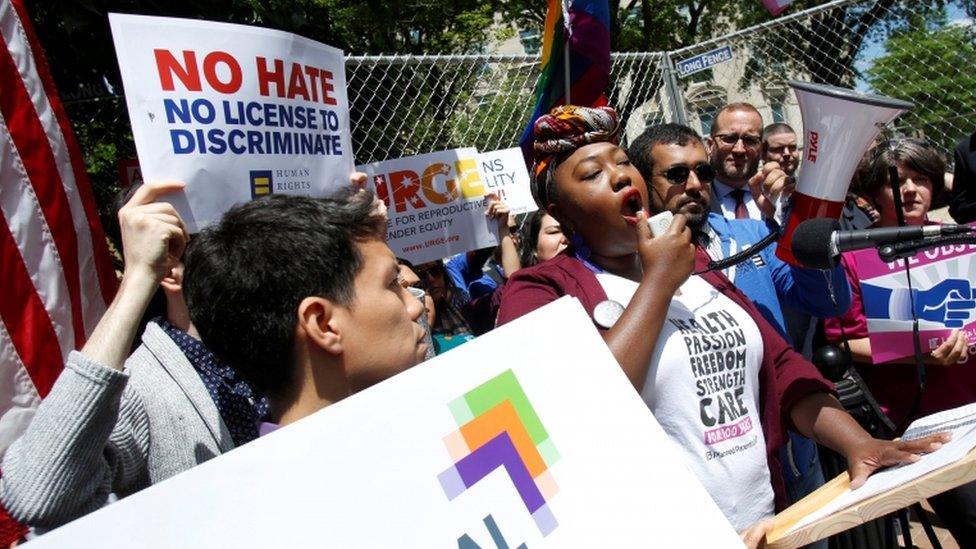
LGBT groups accuse the White House of discrimination
What's the reaction?
The American Civil Liberties Union sent out an "action alert" on Wednesday, calling upon supporters to flood lawmakers' inboxes in opposition to the measure, and threatening to sue the White House administration.

The White House says the order is necessary to protect religious groups that had been "persecuted by the Obama administration" such as the Little Sisters of the Poor, a group which faced huge fines over their refusal to pay for contraception under Obamacare.
In a full-page ad, external printed in Politico, more than 1,300 members of clergy argue that the order would turn religious freedom "into a weapon to discriminate against broad swaths of our nation, including LGBTQ people, women, and children in foster care".
Some religious groups, such as the Alliance Defending Freedom, said that the order did not go far enough in its protections for businesses "simply expressing a religious point of view on marriage that differed from that of the federal government".
Could Donald Trump ban same-sex marriage?
What about the LGBT community?
An earlier draft order that was leaked in February sounded alarm bells among LGBT-rights groups, who have been wary since the election of President Trump and Vice-president Mike Pence.
Mr Pence, a fierce social conservative, signed a religious liberty bill during his time as governor of Indiana, leading to a national backlash from LGBT-rights supporters and the bill's eventual revision.
The earlier draft of Trump's executive order allowed religious organisations and private corporations to deny services to any individual based on "sincere religious beliefs".
Though this version is less sweeping, LGBT-rights groups held rallies outside the White House and Congress on Thursday in opposition to the measure.
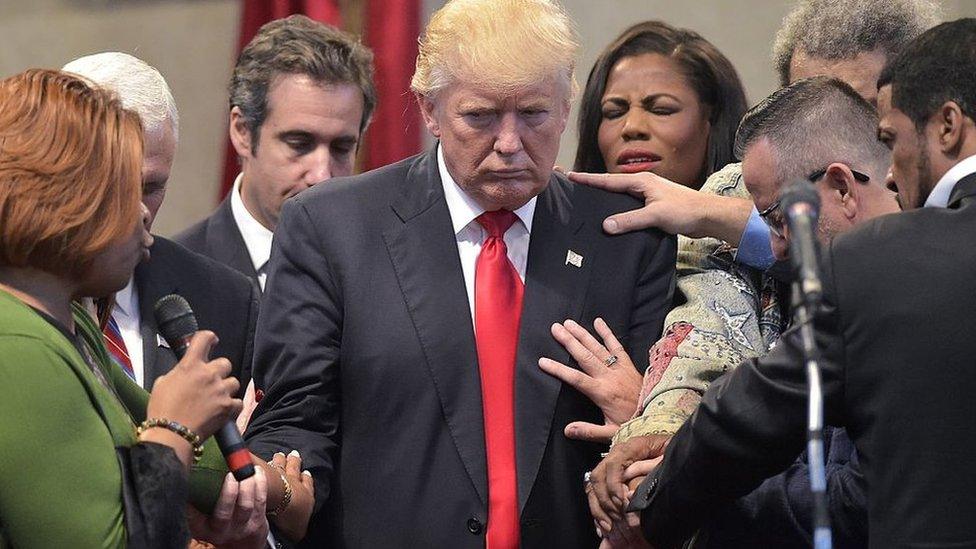
People lays hands and pray for Trump during a visit to a revival church in Ohio
- Published4 May 2017
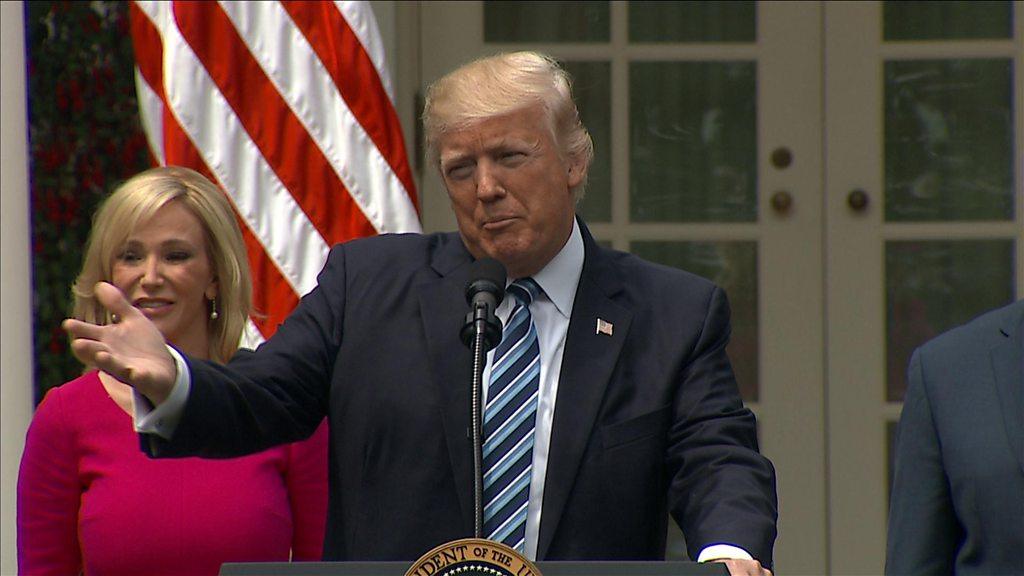
- Published23 November 2016
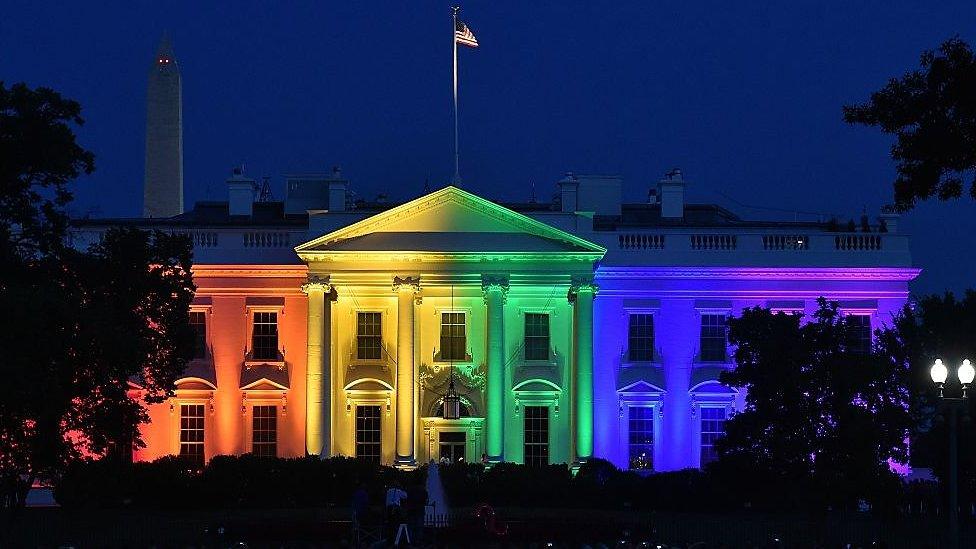
- Published25 February 2016
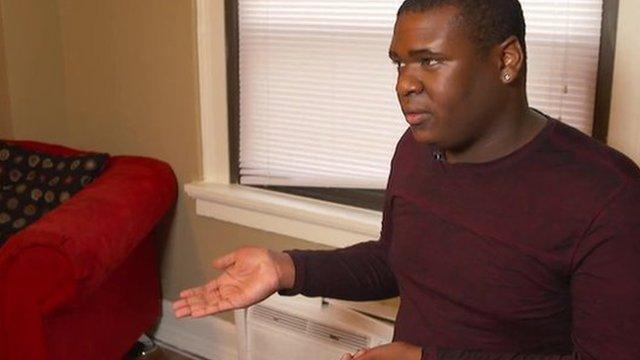
- Published3 May 2017

- Published1 February 2017
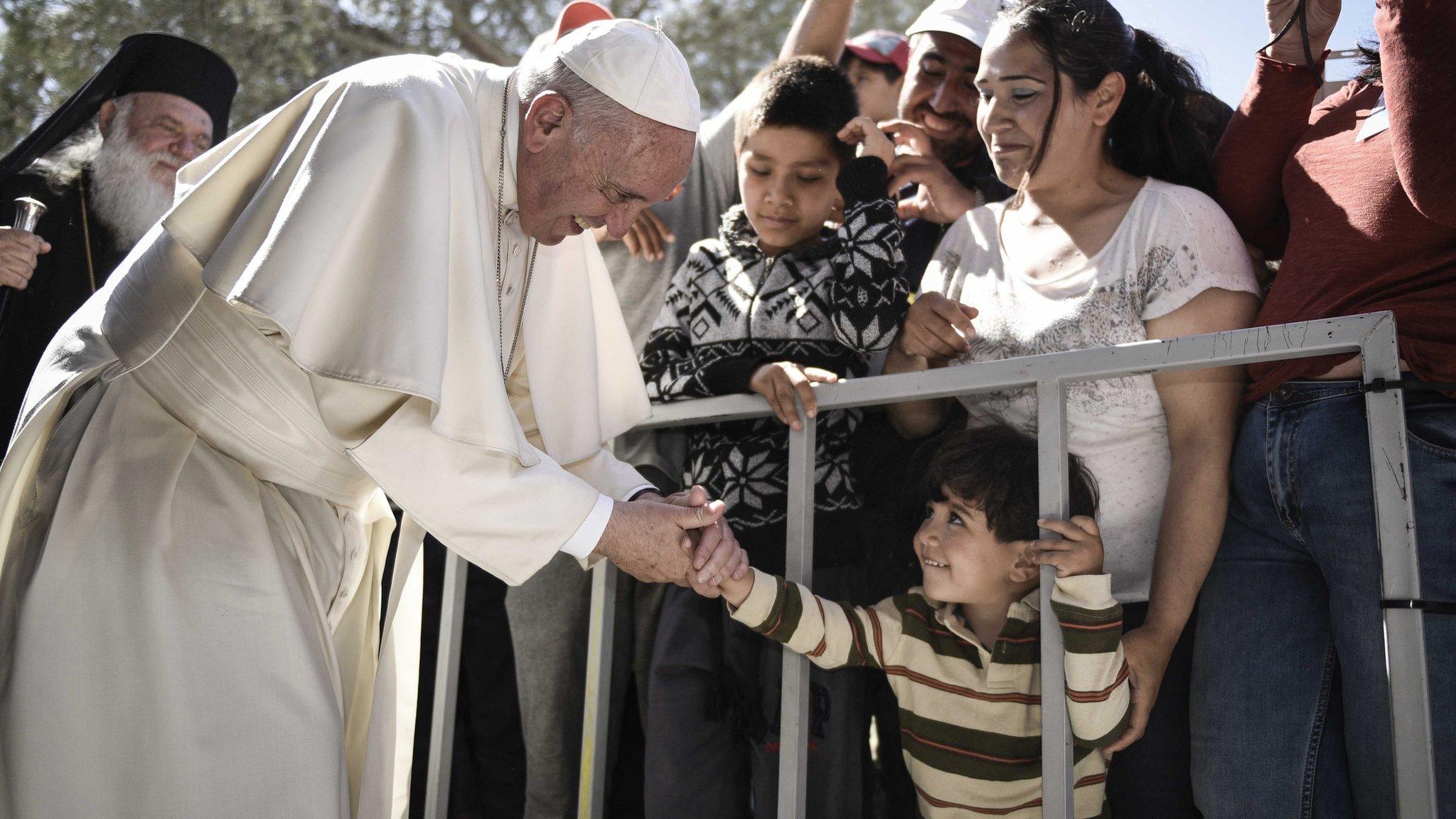
- Published26 June 2015
